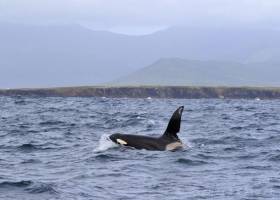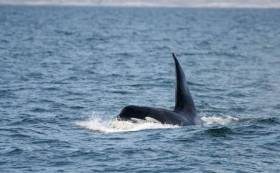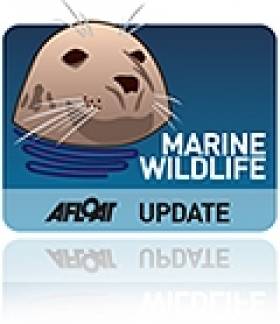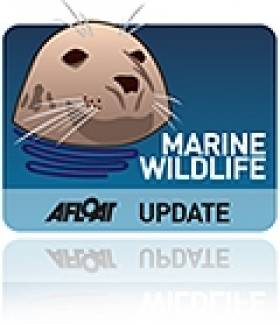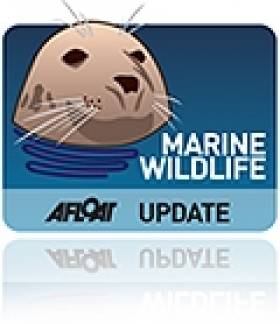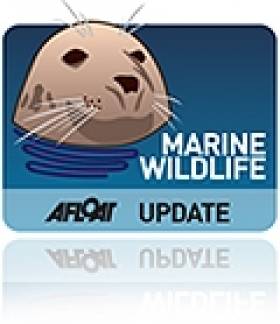Displaying items by tag: killer whale
Killer Whale Mothers Protect Sons from Conflict
Killer whale mothers provide social support to their sons long after they have their last calf, a new study has found.
University of Exeter scientists found that males are protected from other orcas by their “post-menopausal mothers “, who also share the fish they catch.
In a paper for the journal Current Biology, the behaviour of a group of orcas that live in matriarchal social units off the Pacific Northwest coasts was studied.
The scientists found that while male orcas will outbreed with whales from other pods, both males and females stay in their unit of birth, with their mother, for life.
Drawing on data from the Center for Whale Research's annual photographic census of the orca population, the researchers looked for evidence of scarring on each catalogued whale's skin.
Killer whales have no natural predators other than humans, so a tooth mark that is able to puncture an orca's skin is usually inflicted by another orca.
The study found that, if a given male's mother was still alive and no longer reproducing, that male would have fewer tooth marks than his motherless peers or his peers with a mother who was still reproducing.
"It was striking to see how directed the social support was," Darren Croft, University of Exeter animal-behaviour scientist noted.
"If you have a post-reproductive mother who's not your mother within the social group, there's no benefit. It's not that these females are performing a general policing role. These post-reproductive mothers are targeting the support they are giving to their sons,” he said.
Female killer whales live up to 90 years in the wild, and most live an average of 22 years after menopause.
The study noted that they have the lowest incidence of tooth marks in the social unit, suggesting they may be acting as mediators, rather than getting directly involved in conflict with other orcas.
The full study is published in Current Biology here
Kerry Treated To Rare Sighting Of Killer Whale 'John Coe'
#MarineWildlife - Whale watchers on Slea Head were treated to a special sight earlier this week with the surprise appearance of the killer whale known as John Coe, as the Irish Examiner reports.
Landscape photographer Richard Creagh was among the lucky few on Monday (27 June) to spot the orca known by the distinctive notch on his dorsal fin – though in more recent times he's also lost a chunk of his tail fluke, most likely to a shark bite.
Creagh, a keen marine wildlife watcher for the last 10 years, said: "Up to now killer whales had always eluded me but today I got to add them to my list, and what a sight it was! I’m still buzzing!"
John Coe's unique orca pod are regular visitors to Irish waters, though he himself was last spotted close to our shores almost three years ago at the Inishkeas in Co Mayo, according to the Irish Whale and Dolphin Group – which is asking the public to watch the seas for any more sightings of the senior cetacean.
#DopeyDick - A killer whale who gained notoriety after swimming up the River Foyle in the late 1970s has been rediscovered enjoying his retirement off the west coast of Scotland, as the Derry Journal reports.
It's more than 38 years since the orca astounded the people of Derry by swimming up the estuary and hanging around the city for a number of days, earning the name 'Dopey Dick' for shrugging off attempts to lure him back to the safety of open water.
His whereabouts thereafter were unknown -- till cetacean experts with the Hebridean Whale and Dolphin Trust compared old photographs of his Derry visit with more recent images of the unique orca community that makes its home off the western Scottish coast, and identified a positive match.
Comet, as the orca is properly known, is estimated to be at least 58 years old, double the usual life expectancy for the species.
But that's not so surprising for the orca pod referred to as the 'West Coast Community', which has been a regular visitor to Irish waters over the years, and has interested marine wildlife specialists for decades due to its "evolutionary significant" qualities.
Sadly that group's numbers have been dwindling, with fellow orca Lulu becoming the latest victim after its believed she was entangled in fishing gear early this year, as previously reported on Afloat.ie.
#MarineWildlife - The killer whale found beached on a Scottish island last weekend likely died after getting entangled in fishing gear for days, say experts.
As previously reported on Afloat.ie, the orca known as Lulu to researchers, who have been tracking her unique pod since the early 1990s, was discovered on the island of Tiree in the Inner Hebrides last Sunday 3 January.
Lulu's "evolutionary significant" group has been under threat for years due to the absence of calves among its number since scientists began monitoring them around the Scottish and north Irish coasts.
But according to The Press and Journal, Lulu's death was not down to natural causes – with a post-mortem report from experts at the Scottish Marine Animal Strandings Scheme claiming "convincing evidence that she had become chronically entangled" in fishing gear, with deep wounds consistent with a rope wrapping around her tail.
“There were no ropes or gear left on the carcass," said the scientists in a statement. "We’re assuming all this from the lesions we found on her body, so we don’t know if this was due to active fishing gear, abandoned or ‘ghost’ gear, or other marine debris."
The Press and Journal has much more on the story HERE.
Unique Scottish Orca Pod Loses Another Member
#MarineWildlife - One of the last remaining members of a unique pod of killer whales has been found dead on a Scottish island.
As STV News reports, the orca known as Lulu to marine researchers was found beached on the island of Tiree in the Inner Hebrides on Scotland's west coast on Sunday 3 January.
Like John Doe, who is believed to have survived an altercation with a shark a year ago, Lulu was one of a familiar family of orcas that's regularly seen off Scotland and even as far west as the Donegal coast.
It's a pod that's piqued the interest of marine science due to its genetic distinctiveness from other orcas in the North Atlantic, as previously reported on Afloat.ie.
But the "evolutionary significant" group's numbers have been dwindling in recent years due to the absence of calves since scientists started tracking them more than two decades ago.
"It is particularly sad to know that another one of these killer whales, unique to the British and Irish Isles, has died," said the Hebridean Whale and Dolphin Trust. "There may be as few as eight individuals remaining in this population."
STV News has more on the story HERE.
Killer Whale Snacks On Seal Pup In Irish Sea
#MarineWildlife - A seal pup was lunch for a killer whale that's been attracting onlookers to Wales' Irish Sea coast in recent days.
As the Carmarthen Journal reports, the orca was first sighted of Mwnt, north of Cardigan, over the summer, but has since been spotted further down the coast near Fishguard - believed to be attracted by a boom in the local seal population.
It marks a rare appearance for the species in the Irish Sea, as they're more commonly spotted in Scottish waters and off Ireland's North Coast.
And it comes not long after another rare sight in the form of a pod of Risso's dolphins sighted near Anglesey in north Wales earlier this month - with experts telling BBC News that it may be one of the largest such pods ever recorded in Welsh waters.
In other marine mammal news, The Irish Times has video of a seal who appears to have taken a liking to Dublin city centre, swimming many kilometres up the Liffey from the usual Dublin Bay haunts.
Irish Boy's Wish To Train Killer Whale Comes True
#MarineWildlife - Make-A-Wish Ireland brought six-year-old Ondrej Byrtusova's dreams to life when they whisked him and his family away to Florida to train a killer whale, as the Irish Independent reports.
Ondrej – who was born with Hypoplastic Left-Heart Syndrome – was given the opportunity by the Irish charity to teach a few tricks to orca Malia, who is described as "sweet and playful".
“It was the nicest moment ever when I saw my son so happy and joyful,” said his mother Vlasta. “I am very proud of him that he did it.
"He was absolutely brilliant when he trained Malia showing her how to turn, kiss him, say yes and no, wave and splash, shake her tongue and blow bubbles."
It marked the first ever holiday for the youngster, who has endured years of open heart surgeries.
And while his prognosis is unclear, his family say they are making the most of their time together.
The Irish Independent has more on the story HERE.
Preliminary Results On Stranded Killer Whale
#MarineWildlife - Preliminary results from the post-mortem on the female killer whale that stranded in Waterford last week show no obvious cause of death.
As previously reported on Afloat.ie, the five-metre-long female orca was discovered near Tramore last Friday (30 January) amid an unusually high number of cetacean strandings in the first month of this year.
While it was suggested that the killer whale's worn teeth might point to malnutrition, Dr Simon Berrow of the Irish Whale and Dolphin Group (IWDG) explains that such teeth are typical of 'type 1' orcas in the North Atlantic.
The 'type 1' ecotype feed mostly on fish, and are smaller than their 'type 2' marine mammal-eating counterparts.
According to Dr Berrow, samples of skin have been taken for analysis, and tissue from the blubber, liver, kidney and muscles will be studied in greater detail for potential contaminants that could lead to various conditions such as infertility.
"As biologists we can only explore the life of this whale and not determine the cause of death," he says.
"Obviously if there was something obvious or a severe infection, etc, we would recognise this but often an animal may have a number of 'conditions' which are not fatal, and determining cause of death is based on the most likely fatal condition.
"Unfortunately Ireland does not have a post-mortem system for marine mammals, unlike most European countries, so the factors leading to mortality of stranded animals is not known," he adds.
The IWDG has more on the story HERE.
Killer Whale Strands On Waterford Beach
#MarineWildlife - The Irish Whale and Dolphin Group (IWDG) reports on a killer whale stranding near Tramore in Co Waterford yesterday (Friday 30 January).
The five-metre-long female orca was described as being in "a very fresh condition" and was found to have very worn teeth, which points to malnutrition as a potential cause of death.
A post-mortem is scheduled to be carried out tomorrow by a team from the IWDG and Galway-Mayo IT.
The incident is the latest in a "disturbing high" rate of cetacean strandings around the Irish coast this January, with a total of 32 recorded across nine identifiable species.
While it's as yet unknown what has caused this spike in numbers, the recent severe weather systems coming from the Atlantic may be a factor in driving carcasses of animals that may have died of natural causes towards the Irish coast.
The IWDG has more on the story HERE.
North Atlantic Killer Whales Feeding on Sunfish Says IWDG
#MARINE WILDLIFE - The Irish Whale and Dolphin Group (IWDG) has recorded another first for the North Atlantic, with evidence showing that killer whales are feeding on ocean sunfish.
Mark Holmes of the Natural History Museum confirmed the presence of parasites unique to the sunfish found within the carcass of a female orca stranded in Doohooma in Co Mayo.
"These parasites did not originate from the whale's stomach, but came from the prey which it had eaten," said the IWDG's Conor Ryan.
"This was confirmed when the partially digested bones in the stomachs were eventually identified as those of a sunfish beak."
The discovery may explain a recent study of UK waters which found sunfish taking unusually deep dives, possibly to avoid cetaceans and other large predators.



























